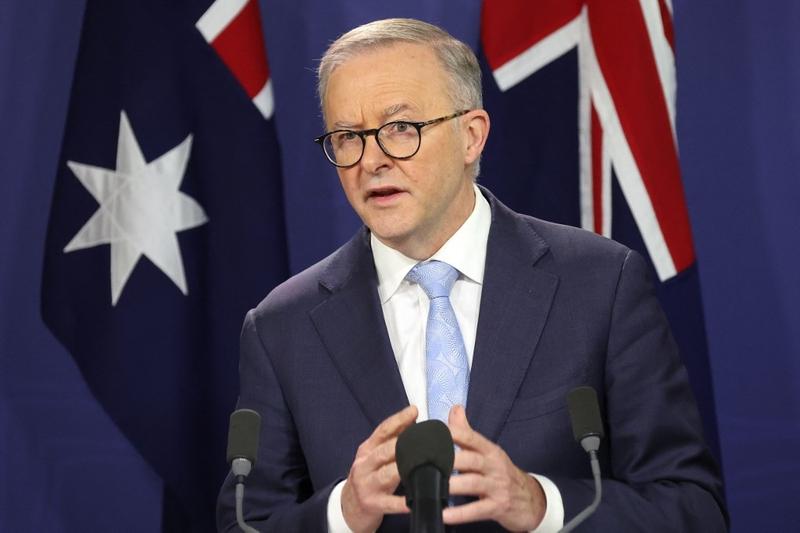 Australian Prime Minister Anthony Albanese speaks at a joint press conference with visiting New Zealand Prime Minister Jacinda Ardern (not pictured) in Sydney on June 10, 2022, after a bilateral meeting.
(DAVID GRAY / AFP)
Australian Prime Minister Anthony Albanese speaks at a joint press conference with visiting New Zealand Prime Minister Jacinda Ardern (not pictured) in Sydney on June 10, 2022, after a bilateral meeting.
(DAVID GRAY / AFP)
SYDNEY - Australian Prime Minister Anthony Albanese on Friday said he would attend "an important" NATO meeting in Madrid at the end of the month as the United States-led alliance looks to further strengthen its ties in the wake of war in Ukraine.
Australia, one of the largest non-NATO contributors to the West's support for Ukraine, has been supplying aid and defence equipment and has banned exports of alumina and aluminium ores, including bauxite, to Russia.
On Thursday, NATO Secretary General Jens Stoltenberg said the alliance will strengthen its battle groups along its eastern flank
At the June 29-30 summit in Madrid, NATO leaders will discuss long-term reform of the alliance although differences remain over troop numbers and locations.
ALSO READ: NATO's risky quest for growth adds fuel to fire
Following Russia's Feb 24 special military operation in Ukraine, NATO has boosted its presence in the Baltics.
Albanese, in power for less than a month, declined to confirm reports that he had received an invitation from Ukrainian President Volodymyr Zelenskiy to visit Kyiv.
A report in the Sydney Morning Herald newspaper said Zelenskiy included the invitation in a letter to Albanese to congratulate the prime minister on his election victory.
Russia on Thursday banned 121 Australian citizens from entering the country, accusing them of being part of a "Russophobic agenda".
Australia has imposed sanctions on hundreds of Russian individuals and entities, including most of its banking sector and all bodies responsible for the country's sovereign debt.
On Thursday, NATO Secretary General Jens Stoltenberg said the alliance will strengthen its battle groups along its eastern flank.
Addressing a press conference after a meeting of the alliance's defense ministers in Madrid, Stoltenberg said the ministers had discussed how the organization can step up practical support for the allies by substantially strengthening its presence, capabilities and readiness.
"More air, sea and cyber defenses, as well as pre-positioned equipment and weapon stockpiles. And a new force model, with more forces at higher readiness, and specific forces pre-assigned to the defense of specific allies to enable much faster reinforcement."
Stoltenberg said the ministers had also discussed resourcing. He recalled that defense investment has been rising across the European allies and Canada for seven consecutive years now and that the allies continue to contribute to NATO deployments and invest more in high-end capabilities.
"Now is the time to keep up the momentum. So we can continue to preserve peace, prevent conflict and protect our people," he said.


